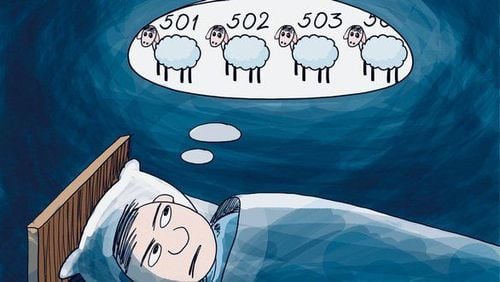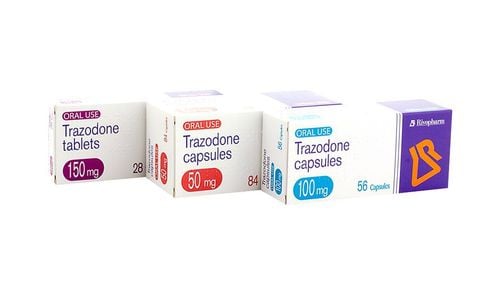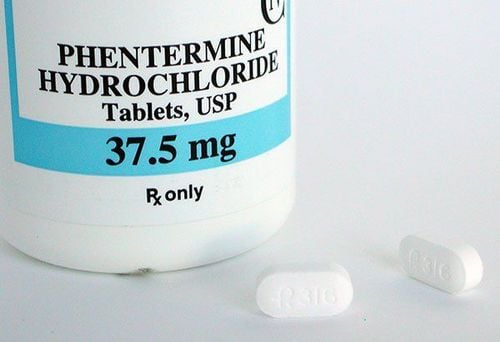This is an automatically translated article.
People who often have insomnia will affect many disorders in the body, one of which is depression. In contrast, insomnia is also a common symptom in patients with depression.
1. What is depression?
Clinical depression, also known as depressive disorder, is a common mood disorder that causes changes in a person's feelings and thoughts. We all feel sad when something unexpected happens, but depression causes more intense, lasting mood swings and physical symptoms that make it difficult to sleep, work and activities in daily life.
Although everyone can experience depression differently, common symptoms can include:
Frequent feelings of sadness, anxiety, hopelessness or emptiness Irritability Loss of interest enjoy activities that have brought you joy before. Feeling low on energy Difficulty concentrating on work or making decisions. Difficulty falling asleep or falling asleep. Changes in appetite, which may increase appetite or loss of appetite or eating habits In severe cases, suicidal thoughts or attempts at suicide. Depression can be related to many factors such as family history, stressors or traumatic experiences, other medical conditions, or certain medications. These factors increase the risk of a depressive episode.
2. The Link Between Insomnia and Depression
The relationship between sleep and mental health, or especially depression, is of great interest to many medical professionals. It is found that the reciprocal relationship between these two factors is a bidirectional relationship.
Specifically, sleep deprivation isn't just a consequence of depression. Insomnia or disrupted sleep itself can trigger depression or worsen depressive symptoms. Several meta-study have shown that people with frequent insomnia and no previous history of depression are four times more likely to develop depression than those with no history of depression. sleep. Not only that, people with depression who lose sleep are at risk of facing more severe depression.
The lack of sleep causes depression can be explained by a number of reasons such as:
Insomnia can reduce mood and mood decline will make it more difficult for us to cope with pressures from life. Some people abuse the use of drugs to treat insomnia also increase the risk of depression. Additionally, studies show that severe insomnia, or reduced sleep over time, can lead to depression due to changes in the brain's neurotransmitter serotonin. Sleep is important to the body, because while we sleep, our bodies grow, repair, maintain a healthy balance of hormones and maintain healthy immunity. From there, it helps us limit chronic diseases, infections ... but if we don't get enough sleep, it will increase the risk of chronic diseases. These same conditions also contribute to depression. However, in some cases where the patient has both sleep deprivation and depression, it is not easy to find out which comes first. But treating sleep problems early can help reduce symptoms of depression and prevent depression from worsening.

Mất ngủ và trầm cảm có mối liên quan với nhau và cần khắc phục
3. How to treat and improve sleep
Insomnia can have many different degrees, the treatment depends on the extent of the disease can include drugs, therapy and need a combination of lifestyle changes.
3.1 Drug Treatment When insomnia cannot be improved by non-pharmacological measures, the doctor may need to prescribe some sedative medication.
Usually sedatives are prescribed for a short time to help you fall asleep. These may include medications such as Ambien, Edluar, Intermezzo or Zolpimist (zolpidem)...
Be aware that some prescription sleeping pills can be addictive, making you dependent on them. You need to use prescription drugs and do not arbitrarily use them without the consent of your doctor.
3.2 Cognitive Behavioral Therapy When your insomnia is aggravated and sometimes combined with other mental disorders such as depression, you should seek advice and treatment from a psychiatrist. . Cognitive behavioral therapy (CBT) for insomnia can help reframe these insomnia responses in a more positive way and build confidence that you can have a good night's sleep. There is some evidence to support this type of therapy for insomnia, and it is also a proven treatment for depression.
3.3 Change your lifestyle Changing your habits is very important to help you get a better night's sleep. Some of the measures you can use include:
Create a sleep schedule: Set a specific time to go to bed and wake up to ensure you achieve a good seven to nine hours of sleep each night. Avoid caffeine, alcohol and large meals a few hours before you go to bed. Darken your space an hour before bed: Tools like blinds, dim lights, and electronics-free bedrooms can help make a space darker. Make your sleeping space comfortable. Turn on the air conditioning for a cool bedroom and treat yourself to supportive pillows and crisp sheets that can also aid sleep. Increasing physical activity, especially outdoor activities, helps you increase the interaction between your biological clock and sunlight. Although a lack of sleep can make it harder for us to exercise, it's well worth it. Being active can help you fall asleep faster, have more restorative sleep, and wake up less often throughout the night. Relaxation: It is recommended to practice relaxation exercises before going to bed such as breathing, muscle relaxation, meditation...

Mất ngủ gây trầm cảm có thể thay đổi lối sống như ngồi thiền
Insomnia and depression are interrelated. It has been found that improving sleep not only helps you prevent the risk of depression, but this is also a measure to help patients with depression improve their symptoms.
Insomnia can have many causes, both in terms of physical and mental health. Therefore, you need to understand the causes of insomnia to have treatment and visit when necessary.
Follow Vinmec International General Hospital website to get more health, nutrition and beauty information to protect the health of yourself and your loved ones in your family.
Please dial HOTLINE for more information or register for an appointment HERE. Download MyVinmec app to make appointments faster and to manage your bookings easily.













